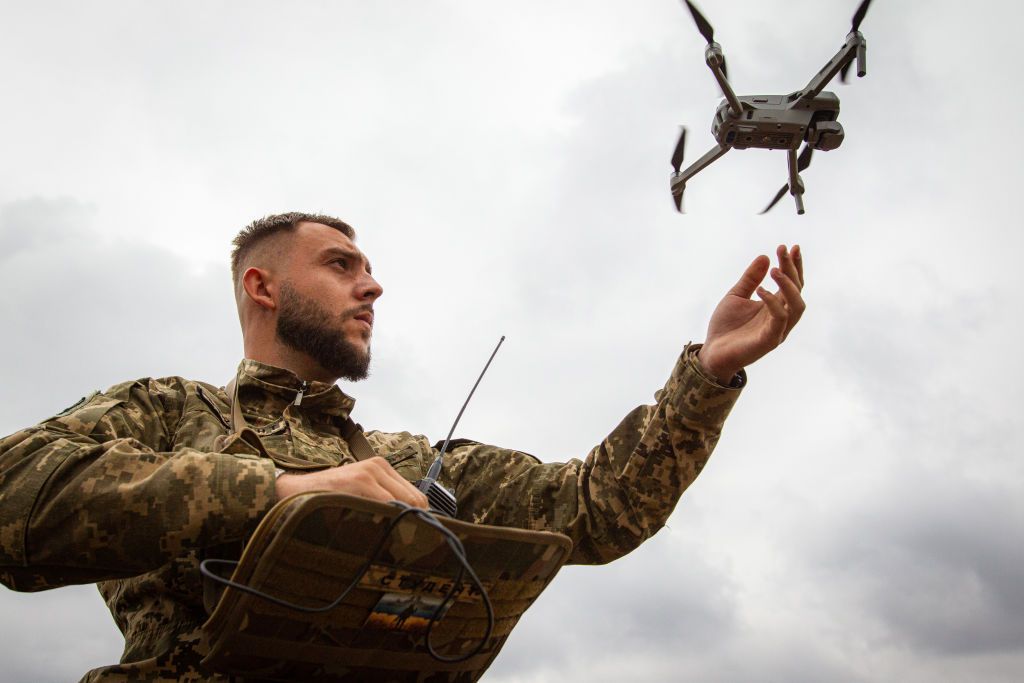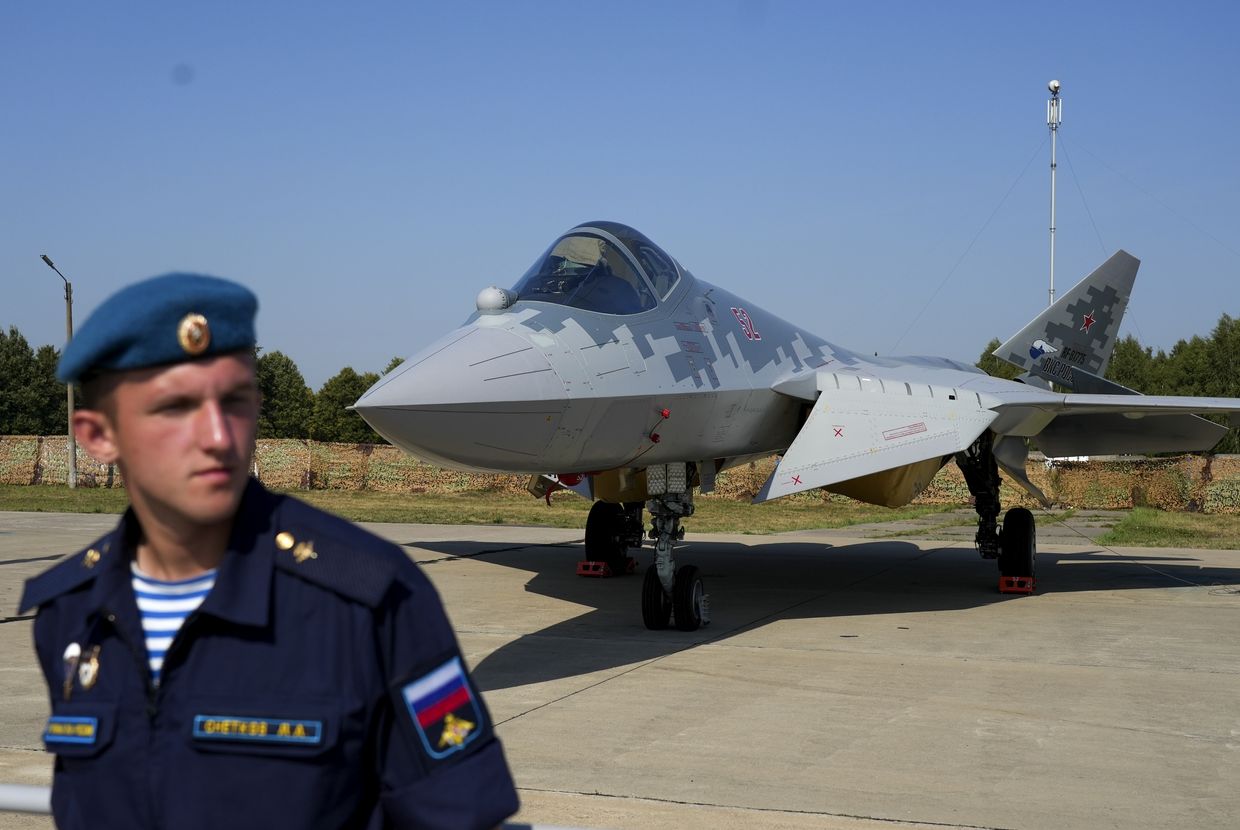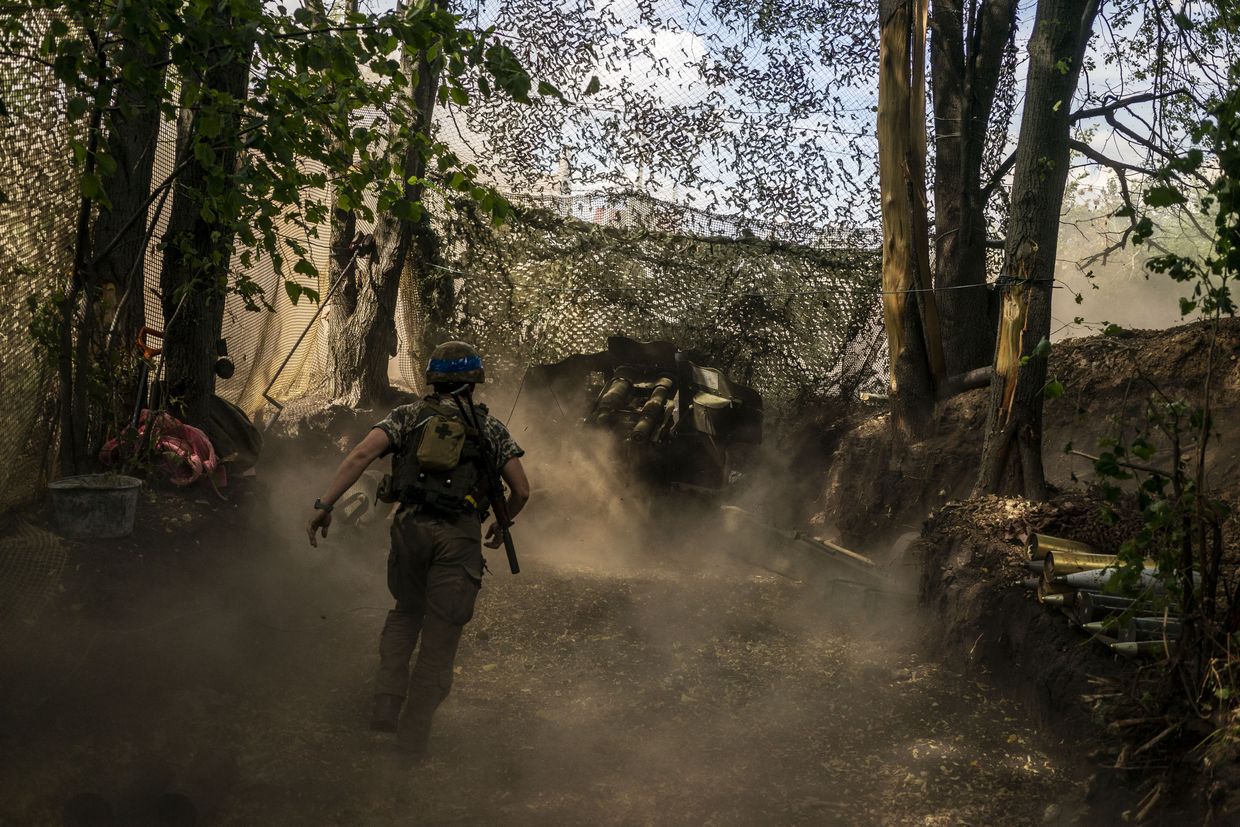Ukraine war latest: Ukrainian drones target industrial facilities in 3 Russian regions

Key developments on June 17:
- Ukrainian drones attack metallurgical plant, other facilities in 3 Russian regions, source says
- Ukraine hits 15 Russian air defense systems in occupied Crimea over past 2 months, military says
- Time will play in Ukraine's favor once F-16s and more Western aid arrive, Syrskyi says
- Azov reports advances in Serebryansky forest
- At least 12,000 civilians confirmed to have been killed since beginning of full-scale war, Prosecutor General says
Ukrainian "kamikaze" drones attacked a metallurgical plant and other facilities used for military purposes in Russia's Belgorod, Voronezh, and Lipetsk oblasts overnight on June 17, Ukraine's military intelligence (HUR) source told the Kyiv Independent.
The confirmation came after Russian governors reported drone attacks on three regions, claiming there were no damage or casualties.
One of the targets was the Novolipetsk metallurgical plant and a local tractor plant in Lipetsk Oblast, according to the source.
"Both enterprises are used by the aggressor for military purposes. In the area of these facilities, local residents heard the sounds of explosions and air defense systems," the source said.
Information about the consequences of the attack is being clarified, the source added.
Igor Artamonov, Lipetsk Oblast governor, claimed that debris fell after two drones were intercepted over Lipetsk industrial area.
The Kyiv Independent could not verify these claims.
At least 70 drones attacked the Morozovsk airfield, located in Russia's Rostov Oblast, overnight on June 14, Ukraine's Military Intelligence Head Kyrylo Budanov said.
Budanov said that he was "waiting for information" about the extent of the damage caused at the airfield, which satellite imagery has confirmed hosts Su-34 fighter jets.
Ukraine hits 15 Russian air defense systems in occupied Crimea over past 2 months, military says
Ukrainian forces struck around 15 air defense systems in Russian-occupied Crimea over the past two months, Ukraine's Center for Strategic Communications (Stratcom) reported on June 17.
The Ukrainian military recently hit several S-300, S-350, and S-400 air defense systems, according to the statement. Ukraine also struck more than 15 radar stations and over 10 control centers stationed in Russian-occupied peninsula.
The military sites were located in Crimean settlements – Chornomorske, Tarkhankut, Yevpatoria, Saky, Donske, Belbek, Sevastopol, Alushta, Dzankoi, Mysove, and near Ai-Petri peak, according to the map published by Ukraine's Center for Strategic Communications.
Ukraine has carried out several successful attacks against Russian targets in occupied Crimea and its vicinity, heavily degrading the Russian Black Sea Fleet.
Air defense losses apparently made Moscow nervous enough to move the latest S-500 systems to the peninsula, Ukraine's Military Intelligence Chief Kyrylo Budanov said.
Russian officials have not commented on the claim.
Time will play in Ukraine's favor once F-16s and more Western aid arrive, Syrskyi says
With the gradual arrival of foreign military aid, including the first batch of F-16 fighter jets, time will favor Ukraine, while Russia's chances of success on the battlefield will decrease, Commander-in-Chief Oleksandr Syrskyi said on June 17.
Ukraine is expected to receive the first F-16 jets in the summer, while the U.S. Congress unblocked the flow of the much-needed American military assistance.
Knowing that Ukraine will receive more Western equipment to strengthen its air defense capabilities, the Russian military command is now "making every effort to increase the intensity and expand the fighting geographically," according to Syrskyi.
Russian troops are pushing on the Kurakhove, Pokrovsk, Kupiansk, and Vremivka sectors in the east, trying to break through Ukraine's defenses and capture key areas or settlements crucial for the Ukrainian military's defense, the general said.
These efforts aim to "maximize the exhaustion of our troops, disrupt the training of reserves, and prevent the transition to active offensive actions," Syrskyi said.
Russia continues to focus on the Pokrovsk sector, concentrating most of its brigades and regiments there, he added.
Heavy fighting continues near Hlyboke, Chasiv Yar, and Staromaiorske in Donetsk Oblast, Robotyne in Zaporizhzhia Oblast, the village of Krynky in Kherson Oblast, and in the islands in the coastal area of the left bank of the Dnipro River, Syrskyi said.
Ukraine's military reported on a number of attacks on occupied Crimea in recent days. This may help degrade Russian air defenses in the area before the arrival of the F-16s and decrease the threat to Ukrainian tactical aviation, said Federico Borsari, a fellow at the Center for European Policy Analysis (CEPA), in a comment for the Kyiv Independent on June 12.
Azov reports advances in Serebryansky forest
Ukraine's Azov Brigade has pushed Russian troops from positions in the Serebryansky forest in Luhansk Oblast, advancing around a kilometer in total, the unit reported on June 16.
Russian forces have spent much of the full-scale war trying to seize control of the Serebryansky forest, viewed as the gateway to the city of Lyman, an important but destroyed train hub.
Ukraine liberated Lyman one day after Russia said it is annexing it with four Ukrainian regions on Sept 30, 2022.
In a Telegram post on June 16, Azov announced that together with the 1st Operational Brigade "Bureviy" of the National Guard of Ukraine, troops had advanced 1 kilometer, adding the gains were across a 2 kilometer front.
In a comment to the Kyiv Independent on June 17, the brigade said further results of the operation, which began on April 21, could not be reported at this time to protect the "safety and success of operations."
The reports come a few days after Azov deputy commander, Sviatoslav Palamar, complained in a post on Facebook that earlier media reports of Russian troops leaving their positions in Serebryansky forest failed to credit Azov with forcing them out.
Appealing to journalists to "write honestly," Palamar suggested they were deliberately not naming the brigade despite them "knocking out (Russian troops) every day, every hour for months."

At least 12,000 civilians confirmed to have been killed, Prosecutor General says
At least 12,000 Ukrainian civilians have been confirmed as being killed since the beginning of the full-scale war, the President's Office reported on June 17, citing Prosecutor General Andrii Kostin.
Russia's war of aggression has taken a staggering toll on Ukraine's civilian population.
The U.N. said in April that it had recorded almost 11,000 civilians killed and over 20,500 injured. The actual number is likely higher, as Russia prevents independent monitoring in the occupied areas that suffered the heaviest destruction, like Mariupol.
The number of civilian deaths in the almost three-month-long siege of Mariupol alone could have exceeded 25,000, Ukrainian officials said in November 2022. An investigation by the Associated Press in December of the same year found that the true figure could be up to three times higher.
Speaking at the global peace summit in Switzerland, Kostin emphasized that the figure of at least 12,000 represented only the confirmed deaths. He added that law enforcement officials have documented almost 130,000 cases of war crimes committed by Russian soldiers, including more than 300 episodes of sexual violence.
Earlier in June, Kostin said that over 800 Ukrainian children have been killed since the beginning of Russian aggression against Ukraine in 2014.














